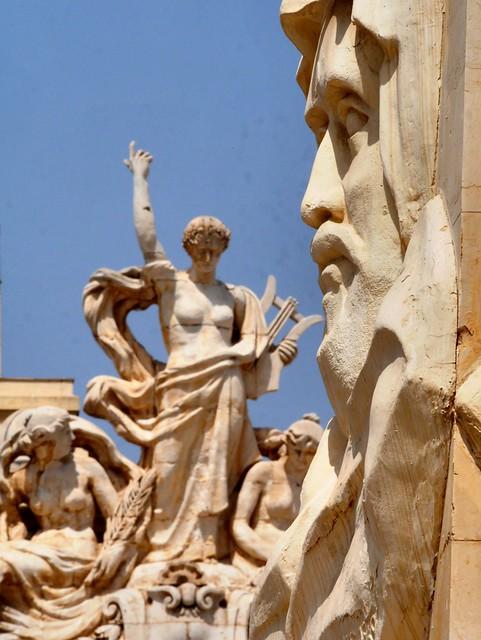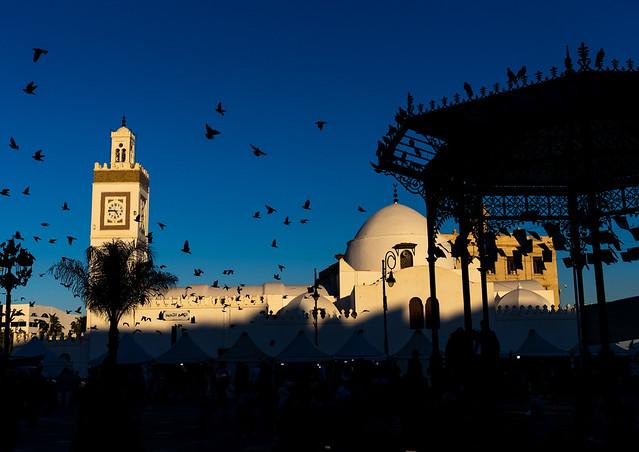Algiers
Overview
Historical Significance
Algiers, the capital of Algeria, is a city steeped in rich history that dates back to ancient times. Originally founded by the Phoenicians in the 3rd century BC, the city has been influenced by various civilizations, including the Romans, Byzantines, and Ottomans. The Casbah, a UNESCO World Heritage Site, is a maze of narrow alleys and whitewashed buildings that epitomize the city's historical architecture. Walking through this old quarter, visitors can admire the stunning blend of Moorish and Ottoman styles, with intricate tile work and beautiful courtyards that tell stories of a bygone era. The Casbah is not just a historical site; it is the heart of Algiers, filled with vibrant markets, artisan shops, and local eateries that exude an authentic Algerian atmosphere.
Cultural Diversity
Algiers is a melting pot of cultures, reflecting its diverse heritage. The city's population is a mix of Berber, Arab, and French influences, which is evident in its language, cuisine, and customs. The vibrant arts scene is showcased in numerous galleries and theaters, while music, particularly Rai and Chaabi, resonates through the streets, providing a lively soundtrack to daily life. Festivals throughout the year, such as the Algiers International Book Fair and the Algiers Film Festival, highlight the country’s literary and cinematic talents, attracting visitors and artists from around the world.
Atmosphere and Lifestyle
The atmosphere in Algiers is a unique blend of bustling urban life and serene coastal beauty. The city's location along the Mediterranean Sea offers stunning views and a pleasant climate, making it an attractive destination for both locals and tourists. The waterfront promenade, known as the "El Madania," is a popular spot for leisurely strolls, where visitors can enjoy the sea breeze, sample local street food, or simply soak in the vibrant ambiance. Cafés and tea houses, often adorned with traditional decor, serve as social hubs where people gather to discuss everything from politics to poetry, embodying the Algerian spirit of hospitality.
Local Cuisine
Algerian cuisine is a highlight for any visitor, with Algiers offering a tantalizing array of dishes that reflect its diverse cultural influences. Traditional meals such as couscous, tagines, and various grilled meats are staples, often accompanied by fresh vegetables and aromatic spices. The city also boasts a thriving café culture, where visitors can enjoy mint tea, known as "thé à la menthe," and pastries like baklava, showcasing the sweet side of Algerian culinary traditions. Markets, such as the vibrant Souk El-Hara, are perfect for exploring local ingredients and experiencing the hustle and bustle of daily life.
Modern Attractions
In addition to its historical and cultural richness, Algiers is home to modern attractions that reflect its evolving identity. The monumental "Martyrs’ Memorial" (Maqam Echahid) is a striking tribute to those who fought for Algeria's independence and offers panoramic views of the city. The National Museum of Fine Arts houses a remarkable collection of both Algerian and international art, making it a must-visit for art lovers. Furthermore, the city’s modern architecture, such as the iconic "Great Mosque of Algiers" and the new El-Madania Cultural Center, showcases the country’s contemporary aspirations while harmonizing with its storied past.
Conclusion
Algiers is a city that invites exploration, offering a captivating mix of history, culture, and modernity. Its unique atmosphere, shaped by centuries of diverse influences, creates an unforgettable experience for foreign travelers. Whether wandering through the winding streets of the Casbah, savoring the flavors of Algerian cuisine, or enjoying the vibrant arts scene, visitors to Algiers will find a city brimming with life and stories waiting to be discovered.
Other towns or cities you may like in Algeria
Explore other cities that share similar charm and attractions.




